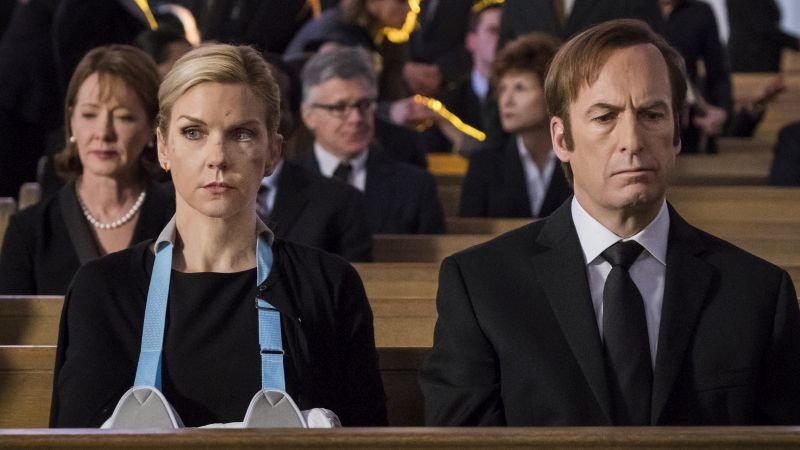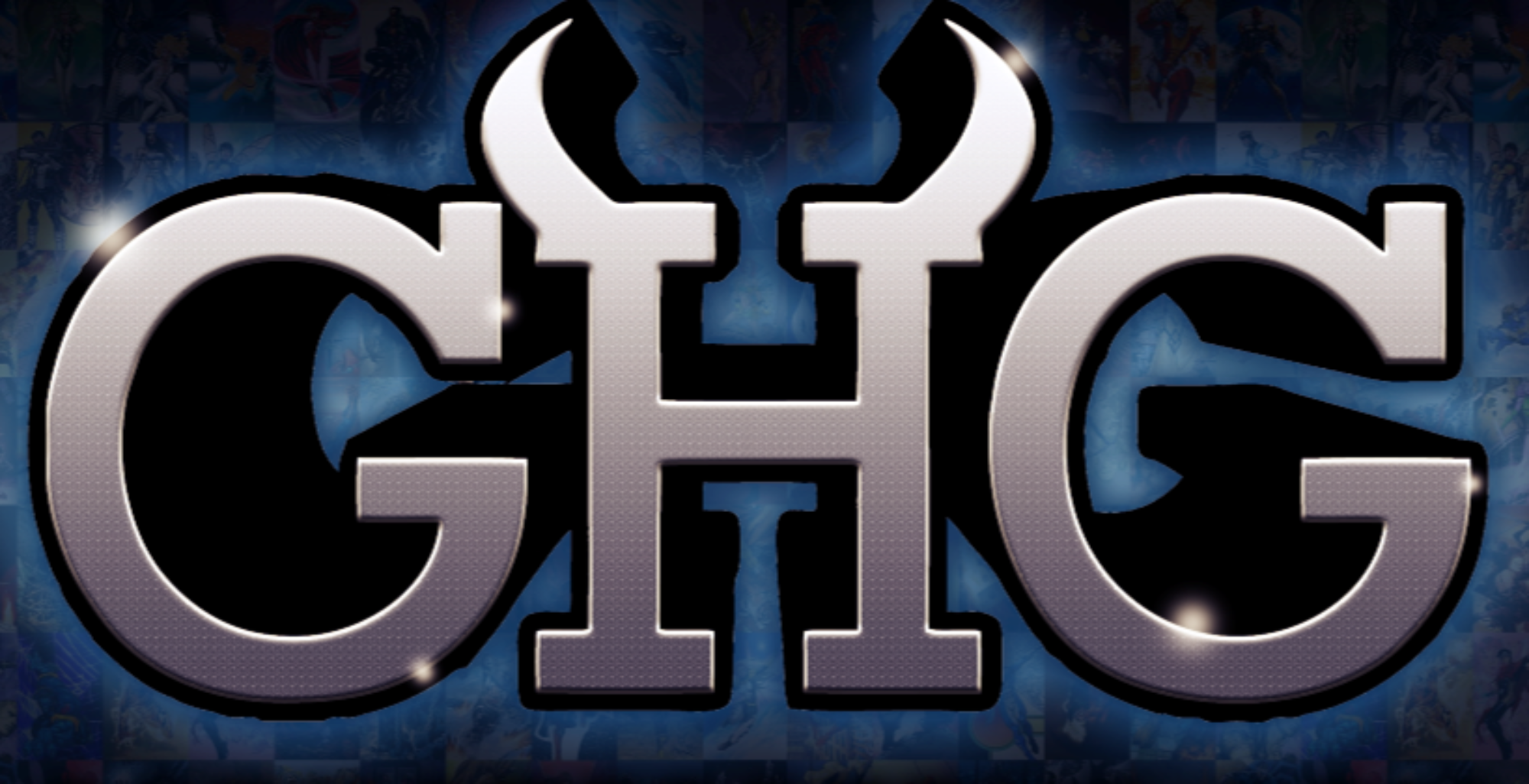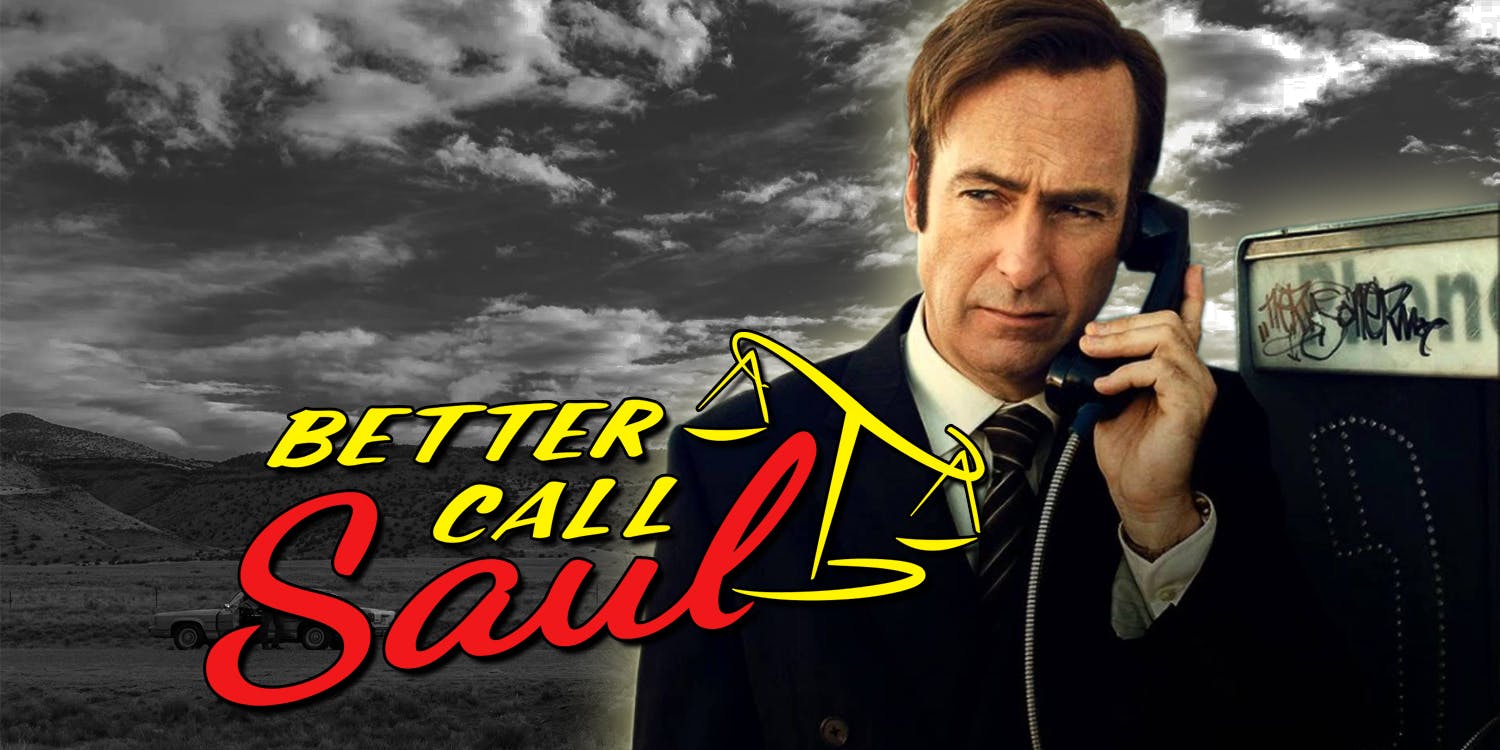
With a cold black-and-white opening that throws us into present-day — or, as some keen-eyed viewers suggest, the future — Better Call Saul is back in its fourth season, finding Gene Takavic (nee Jimmy) being carted off to the hospital after collapsing, picking up right where season 3 ended. A close, tense, paranoid moment between a revived “Gene” and an overly-jolly hospital worker (“Oops! I mistook the ‘0’ for and ‘O’!”) nearly breaks through his interior, but a later cab-ride nearly gives our main character a panic attack. The reality of living on the lam, in his own self-confessed “best-case scenario” might be starting to get to him…
And then we’re thrown back into the over-saturated, neon-colored past of the early 2000s, with the aftermath of Chuck’s self-immolation just being fully realized. The fire that closed out Season 3 has, indeed, taken the life of Jimmy’s only living relative, and here we have a pretty great bit of character work for both Jimmy McGill, and Howard Hamlin.
Whether Jimmy himself feels any grief for the loss of his brother is brilliantly ambiguous; sure, his only relative has passed away, but with the discovery that his brother had relapsed (having shoved all of his electronic equipment back into his garage), there’s perhaps also glimmer of relief that the burden of taking care of his brother — who, keep in mind, in no unclear terms revealed how little he thought of Jimmy — and that he no longer has to worry about approving or appealing to Chuck’s presumed moral superiority. What little guilt he might feel is not enough for him to reveal that it was he who had alerted Hamlin-Hamlin-McGill’s insurance company of his brother’s ailment, which led to Hamlin kicking Chuck out of his own law firm.

Patrick Fabian, as Howard, lends a deft weight to his character, cracking a bit of that hard exterior. Watching him put aside all quarrels (personal and professional) that he might have with Jimmy, and taking it upon himself to write and recite Chuck’s obituary brought much more human dimension to Howard. The closing scene, where he, Jimmy, and Kim share a mournful moment, and where Howard reveals how he maneuvered to push Chuck out of the law firm he himself had found 25 years earlier (a moment gone uncontested by either Jimmy or Kim) is one of the few truly human moments that Fabian projects from his unusually professional, taciturn character.
Onto the crime! Nacho’s gotten through with hospitalizing Salamanca, but — in a tense series of scenes — is unable to get rid of the pill bottle with which he’d switched the old gangster’s medication. Gus Fring, and Juan Bolsa, debrief Nacho, making it clear Salamanca’s business goes on as usual, with Nacho now having a shot at impressing Don Eladio should his upcoming job succeed. Finding himself alone, Nacho is able to discard the pill bottle without anyone noticing…or so he thinks…

And now, in the episode’s most entertaining sequence, we’ve got Mike. Having received a check for $10,000 dollars laundered through Madrigal, Mike unceremoniously retires from his parking attendant position, spends a day with his granddaughter, and contemplates his prospects. Tracking down and employee — and stealing of the I.D. card — of a Madrigal employee, Mike walks right into Madrigal, through the front door, past security, and into the warehouse and storage.
It was an amusing sequence: Mike walking into the cubicle farm, and taking a clipboard; back into the break room, before talking to two employees about who would win a fight between Bruce Lee, and Muhammad Ali, before signing a ridiculous birthday card; wandering through the warehouse before stealing a hazard vest; driving a golf cart between aisles; taking documents out of the trash; berating workers for not using the proper safety gear…before confronting the regional manager and explaining every single security risk this particular Madrigal branch suffered. As my girlfriend stated, while we watched, “I never know what he’s doing, as he’s doing it…but I can’t stop watching him.” Jonathan Banks has such an intense focus as Mike, it’s impossible not to keep your eyes on him, and with the crisp cinematography, it is always wonderfully clear and easy to follow.
Better Call Saul remains one of the most cinematic network shows, and, refreshingly, is not averse to taking its time building its action. Even a short sequence of a nameless employee showing his son how to fix a bicycle chain is shot and composed with such clarity, such purpose, that it doesn’t feel unearned nor unnecessary. Additionally, this heavier tone (without necessarily becoming darker), foreboding as it sometimes feels, is a great segue into what Breaking Bad eventually evolves: here, we’re seeing the same themes play out. Whereas with Walter we were seeing a good man succumb to instincts he never knew he had, here we watch a scoundrel slowly let go of what little humanity he has left, let go, and become what he had been holding himself back from becoming. It’s fascinating, wonderfully-shot stuff, and it’s got me ’til the end. 4/5 Bottles of Zafiro Añejo.
-J.L. Caraballo

